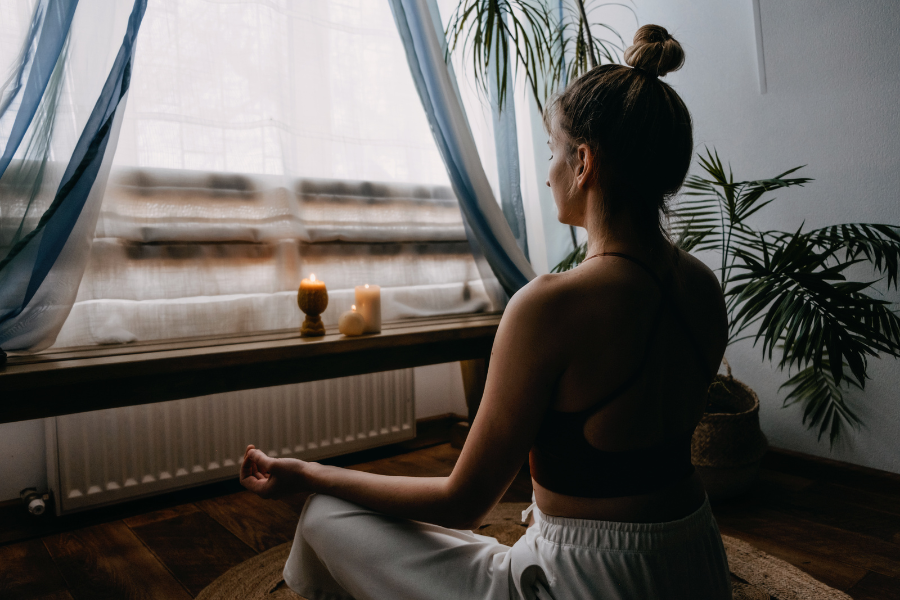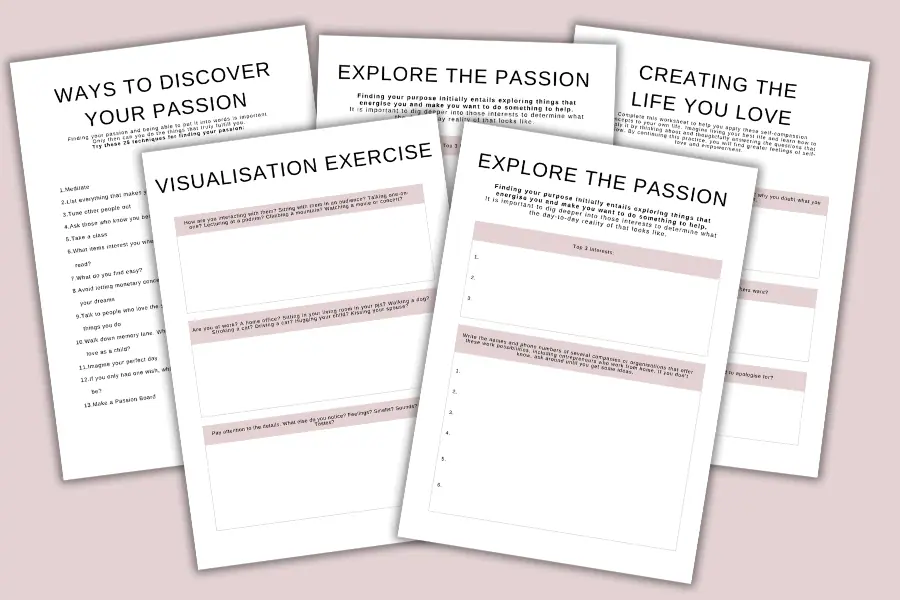Self-Care Tips for Anxiety
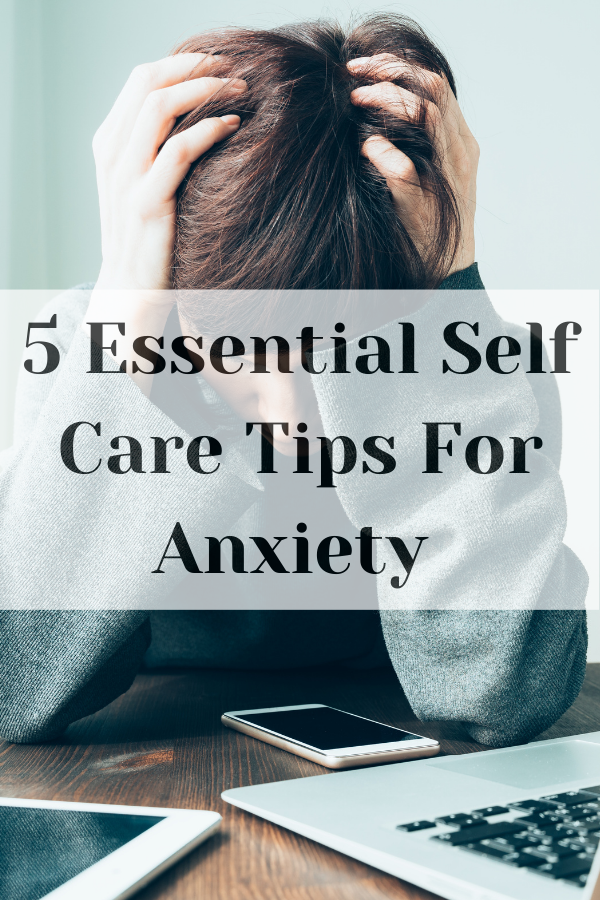
Anxiety can show up in many ways. Racing thoughts. A tight chest. Feeling overwhelmed for no clear reason. It’s something so many of us deal with—and it can feel exhausting.
The good news?
There are small, simple things you can do each day that really help. They may not make the anxiety disappear completely, but they can make it easier to manage.
In this post, we’ll go over easy self care tips for anxiety that you can start using right away.
No pressure.
Just gentle, helpful ideas to support your well-being.
This post is about self-care tips for anxiety.
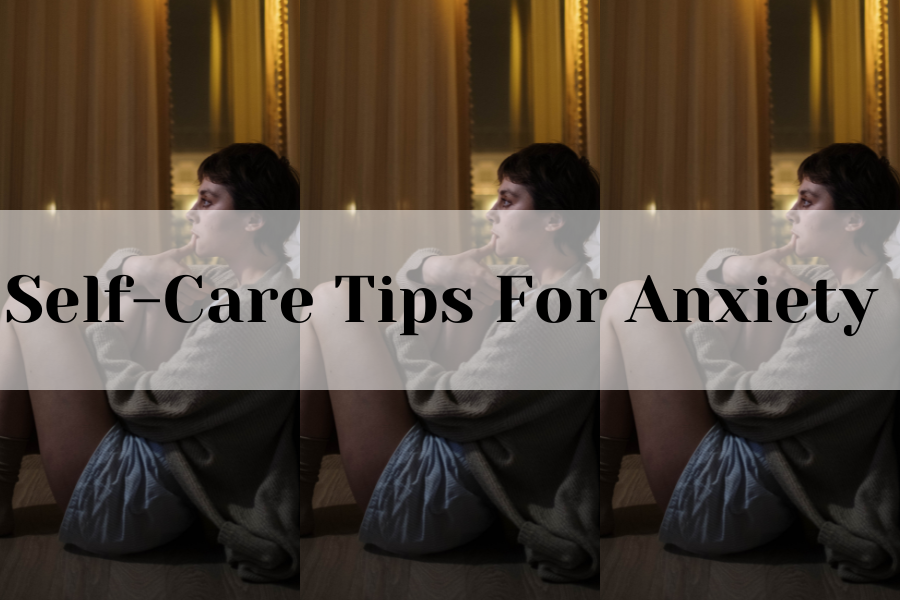
Why Self Care Matters For Anxiety
When you’re dealing with anxiety, it’s easy to put yourself last. You might try to push through, keep busy, or ignore how you’re feeling.
But self care is not selfish. It’s essential.
Taking care of your body and mind helps create a sense of balance. It gives you space to breathe, reset, and calm your nervous system.
Personally, I’ve noticed that when I skip the little things—like drinking water or getting outside—my anxiety creeps in more.
But when I make time for myself, even in small ways, things start to feel a bit more manageable.
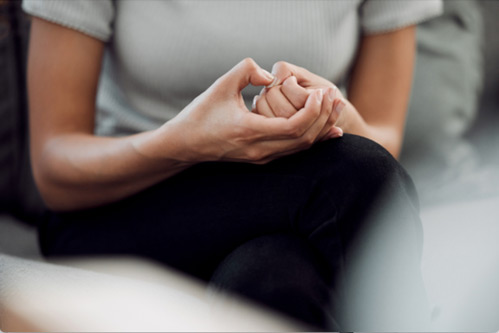
Easy Self Care Tips For Anxiety
These self care tips for anxiety are simple and doable. You don’t need to change your whole life.
Just try one or two and see how you feel.
1. Get Outside for Fresh Air
Even a short walk can make a big difference.
Nature has a calming effect on the mind.Step outside, take a few deep breaths, and look around. Trees, sky, sunshine—they all help bring you back to the present.
2. Stick to a Daily Routine
Routines give your day structure.
When things feel chaotic inside, having a predictable plan can bring comfort.Try waking up and going to bed at the same time each day. Add in a few regular habits, like morning tea or a short walk after lunch.
3. Limit Caffeine and Sugar
Caffeine and sugar can make anxiety worse.
They speed up your heart and can make you feel jittery. I learned this the hard way. Cutting back helped me feel more grounded. Try switching to herbal tea or drinking more water throughout the day.
4. Practice Deep Breathing or Meditation
A few minutes of slow, deep breathing can calm your nervous system.
Try this: breathe in for 4, hold for 4, breathe out for 4, and pause for 4. Do it a few times. Apps like Calm or Headspace can also guide you through meditation if you’re just starting out.
5. Try Journaling Your Thoughts
Writing things down helps clear your mind.
You don’t need to write anything fancy. Just jot down how you’re feeling or list a few things you’re grateful for. This simple practice can help you see your worries more clearly—and sometimes even let them go.
6. Move Your Body – Even a Little Helps
Exercise doesn’t have to mean the gym.
A walk, gentle yoga, or dancing in your living room all count. Movement helps release tension and boosts your mood. Even 10 minutes a day can help reduce anxious feelings.
7. Say No to Overcommitting
If your plate feels too full, it’s okay to say no.
Overcommitting can increase stress and leave little room for rest. Protect your energy. It’s okay to put your needs first sometimes.
8. Connect with Someone You Trust
Talking to someone who listens can make a huge difference.
It could be a friend, family member, or therapist. You don’t have to go through it alone.
9. Unplug for a While
Constant scrolling can increase anxiety.
Social media and news updates can be overwhelming. Try putting your phone down for a bit. Read a book, take a bath, or just sit in silence. A little digital detox can go a long way.
10. Prioritise Sleep
Lack of sleep can make anxiety worse.
Create a calming bedtime routine—turn off screens, dim the lights, and do something relaxing before bed. Sleep is healing. Make it a priority.
Moving Forward
Taking care of your mental health doesn’t have to be complicated. It’s often the smallest things that make the biggest difference—especially when they’re done with intention and care.
These self care tips for anxiety aren’t meant to fix everything overnight.
And that’s okay.
You don’t need to have it all figured out. You don’t need to be perfect. You just need to show up for yourself in the ways that feel right, even if it’s just for five minutes a day.
If today feels heavy, give yourself permission to rest.
If your mind is racing, pause and take a deep breath. If you’re unsure where to begin, pick one small thing from the list above and try it.
Self care isn’t a luxury—it’s a lifeline. And over time, these small habits can help create a greater sense of calm and control in your life.
You’re doing better than you think. Keep going.
Be kind to yourself. You deserve peace, support, and moments of joy—even when anxiety tries to convince you otherwise.
This blog post was about self care tips for anxiety
Share this post: on Twitter on Facebook


